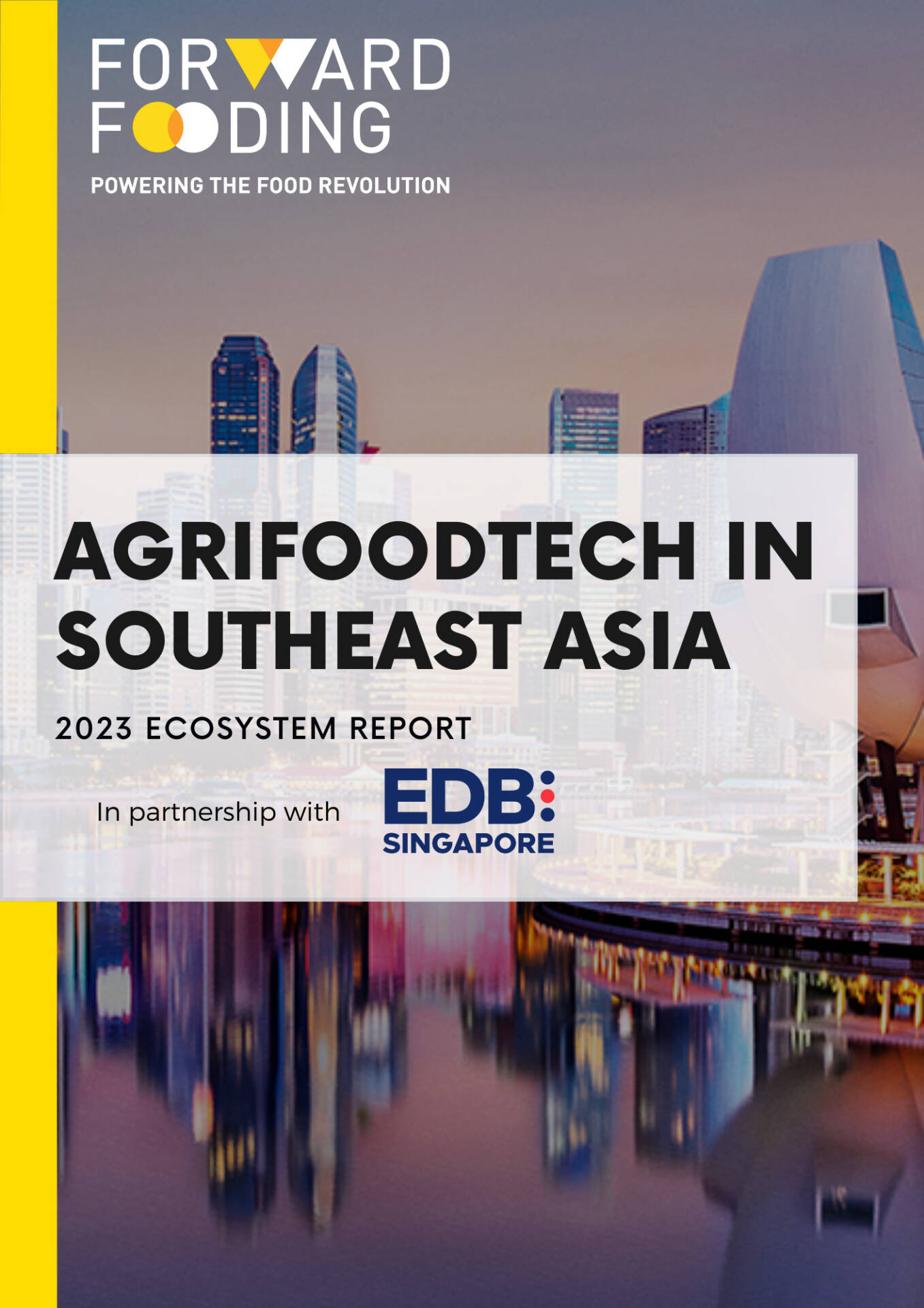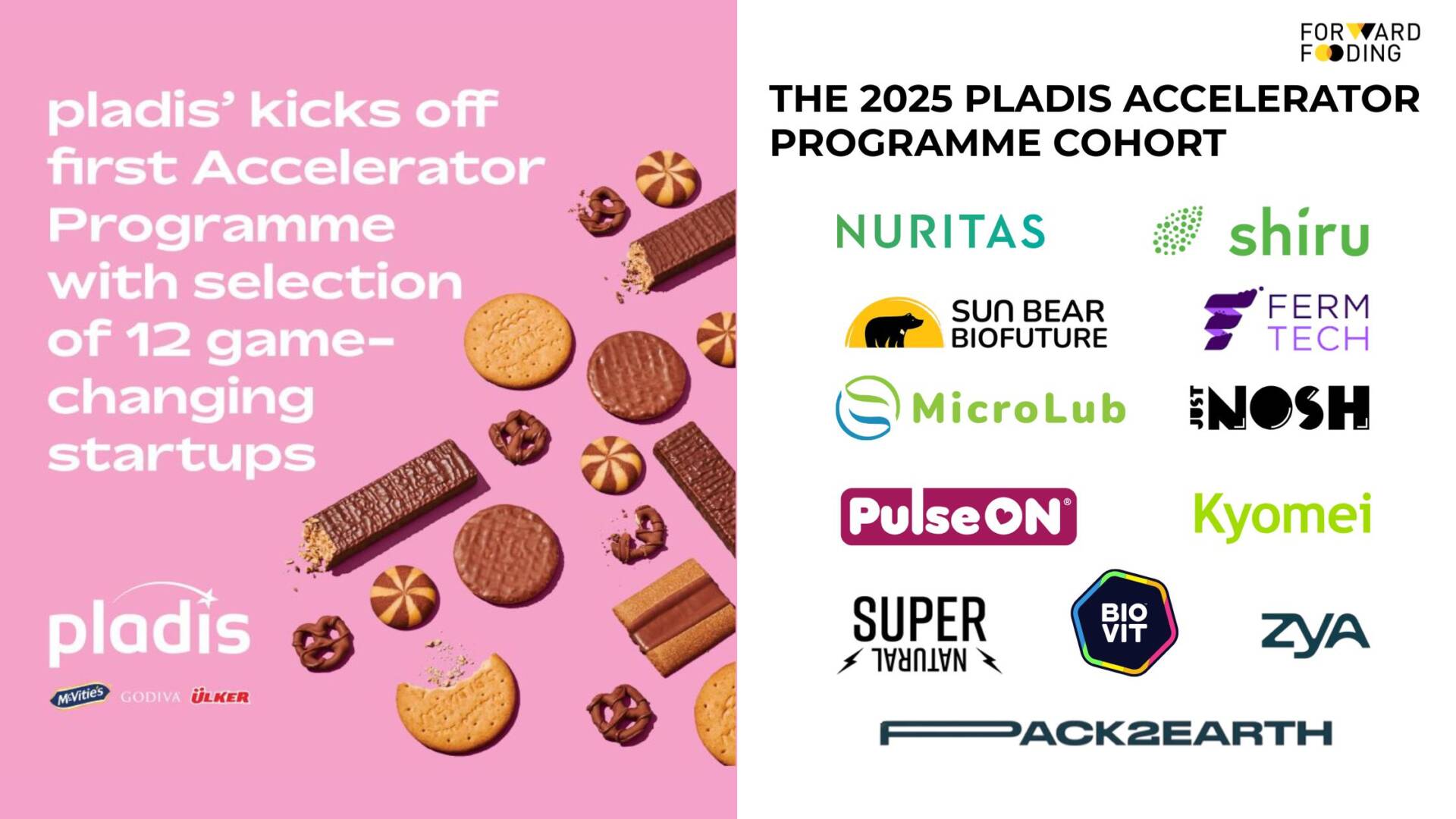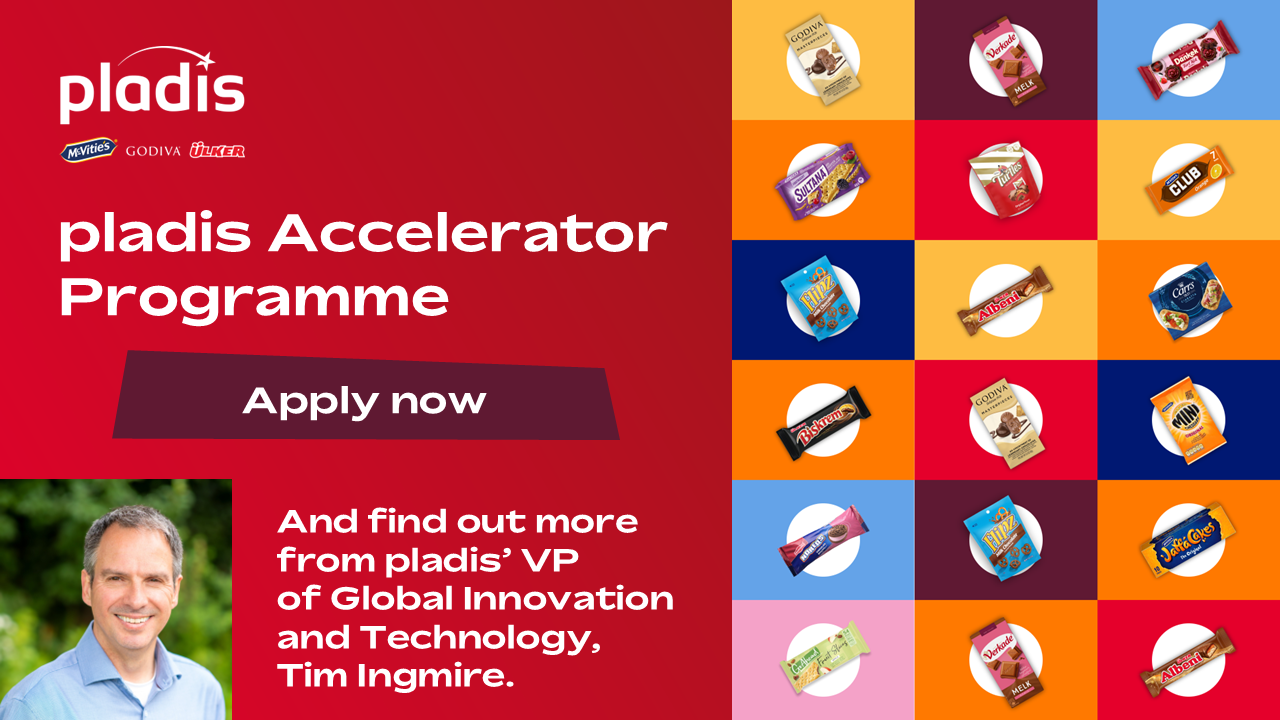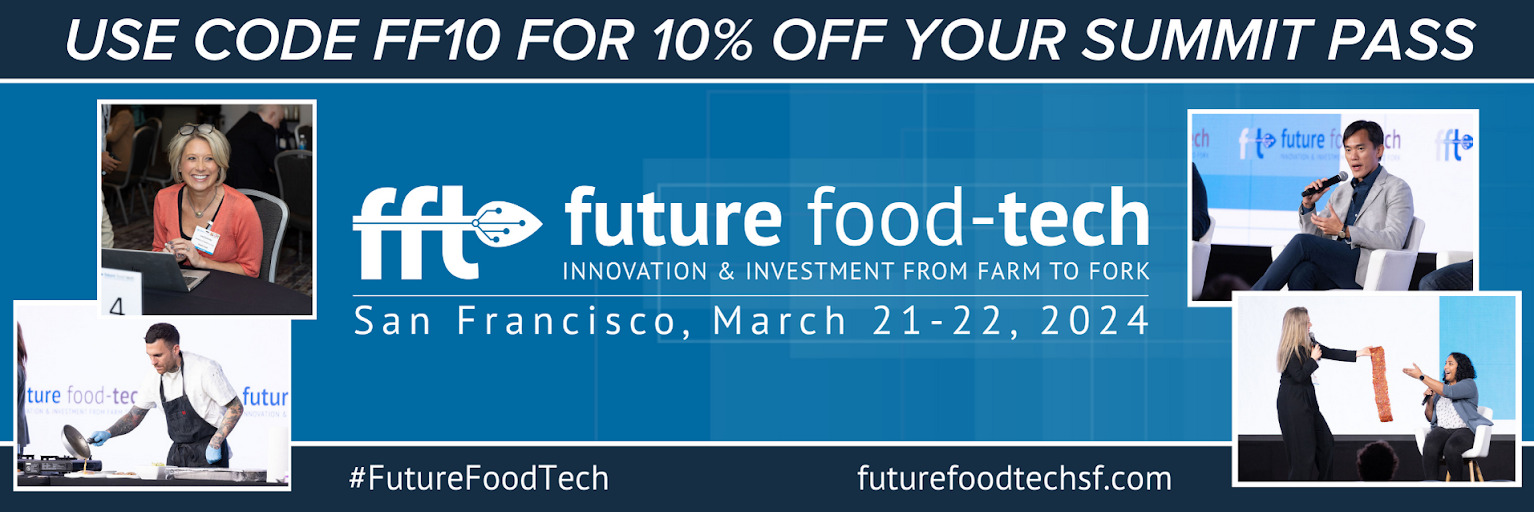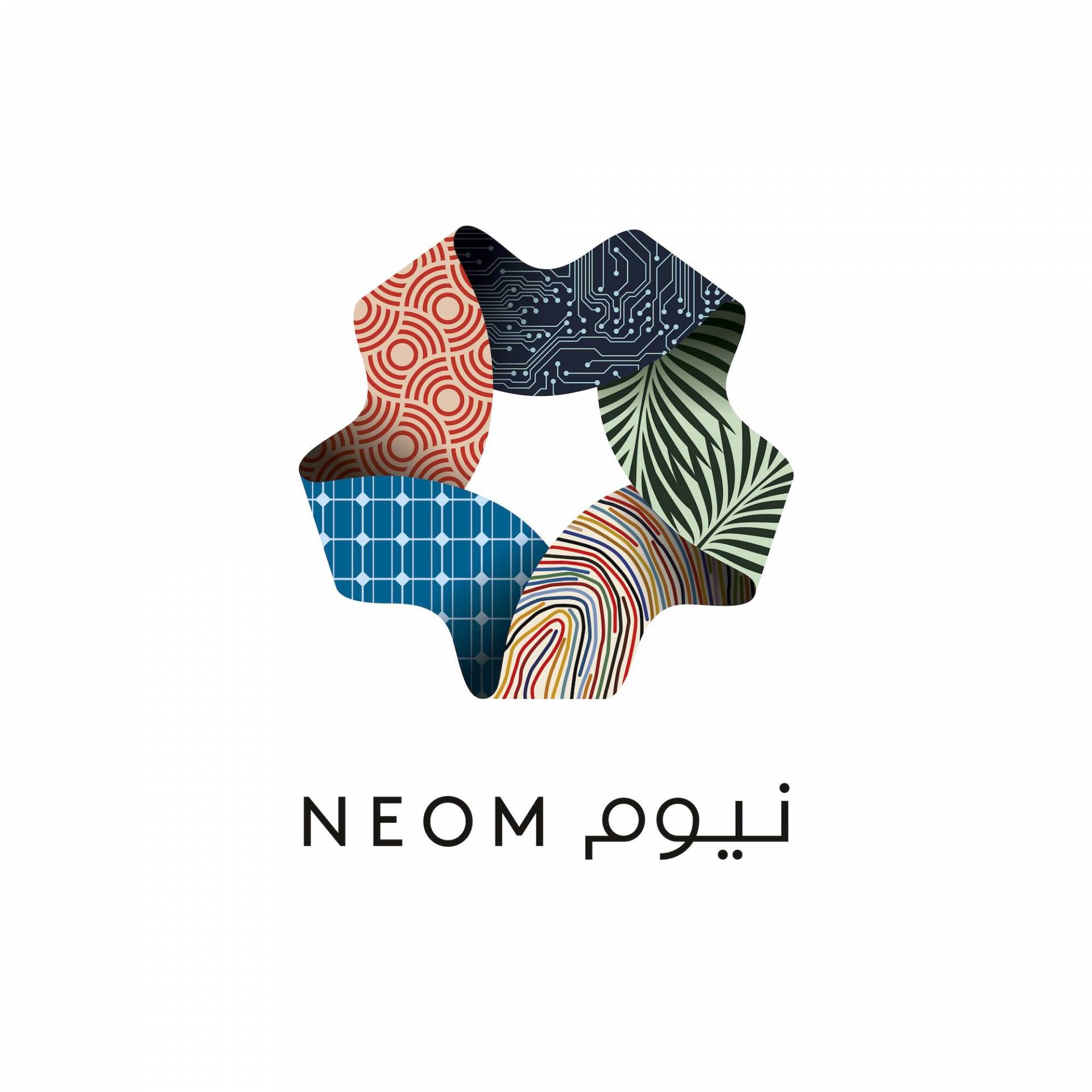FORWARD FOODING
THE BLOG
Food personalization: a new key competitive advantage to F&B companies?

Evolution of Funding Raised (2014-2024)
Personalization is the process of customizing products, services or experiences to meet the needs of individual customers. According to McKinsey, companies that excel at personalization generate 40% more revenue from those activities than other players. People want experiences that are customized to their needs and preferences.
Consumer expectations and how companies interact with them have changed dramatically over the last decade. Epsilon research established that 80% of consumers are more likely to buy when brands offer personalized experiences.
What about Food?
In the food and beverage industry, personalization is also emerging as a key trend. Consumers are demanding more control over their diets, with specific recommendations based on their health and goals. According to Innova Market Survey, 64% of global consumers demand more personalized nutrition and products, tailored to their lifestyles.
At the same time, Mintel determined that by 2030, consumers will know their personal and biological requirements thanks to accessing to testing and data technology. Companies are going to have to offer “more personalized product offerings and smart solutions to consumers in addressing mood and brain health”.
So let’s deep dive into the latest trends, business models, and innovations in this space.
Personalization and direct-to-consumer business models
A recent study established that 55% of consumers are likely to buy from companies that adopt a direct-to-consumer model. When looking at the benefits of running a D2C model, the main one that arises is the data collection aspect.
By selling D2C, brands have the ability to leverage consumer data to deliver a more personalized experience. The President of Mars Edge (who recently acquired German D2C targeted nutrition company Foodspring) stated:
“We put the data at the center of what we do to drive differentiation, innovation, personalization and accuracy, and we focused on digital solutions with D2C businesses.”
The data collected can be leveraged to identify new target markets or audiences, improve products or services, and even predict trends and consumer behaviors. In an Econsultory’s interview, Tim Schmidt, CEO of meal kit company Gousto, highlighted the importance of data in a personalization strategy:
“I’m a geek at heart, so I really admire our data team. With PhDs in machine learning, computational chemistry and math, we have some serious firepower when it comes to personalisation. And we run a state-of-the-art AWS cloud micro-server infrastructure that allows us to process huge amounts of data, super-fast.”
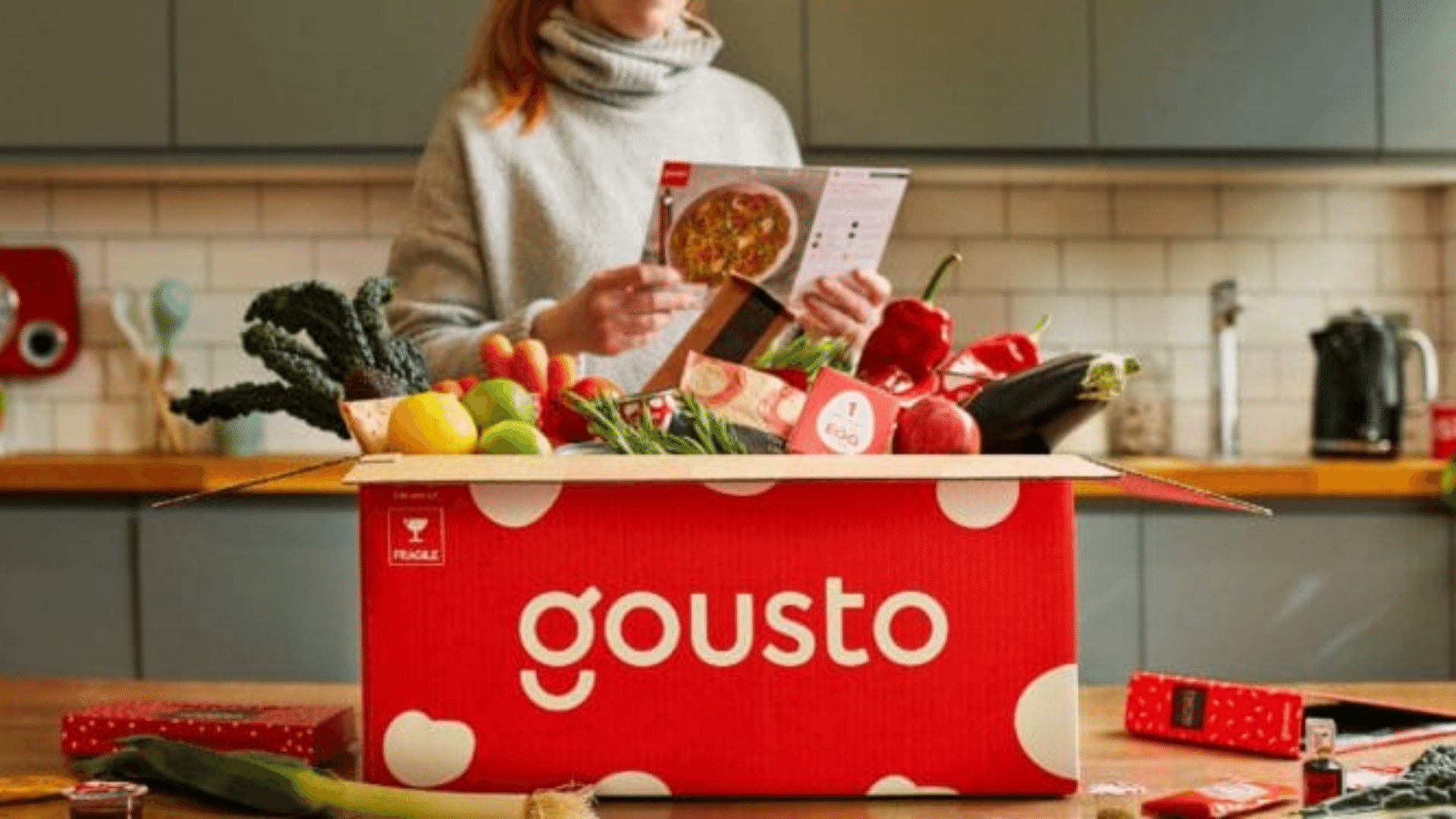
Big Food companies are already adapting to deliver more personalized experiences to consumers. For instance, PepsiCo launched two direct-to-consumer sale channels called PantryShop.com and Snacks.com, while Heinz created Heinz to Home as a D2C initiative combined with personalization. Moreover, DSM has extended its relationship with personalized nutrition company Mixfit (a D2C company that designs nutritional experiences to encourage positive changes in health behavior), taking a 50% stake to add to the partnership that previously existed between the two firms.
Food Personalization: key numbers and characteristics
Within food personalization we observe different approaches and degrees based on factors such as the level of data and analysis used, the level of interaction with consumers and the extent of personalization offered. Food personalization has evolved well beyond individualized meal plans, expanding into nutrition profiling and DNA tests, or personalized meal kits delivered directly to your door.
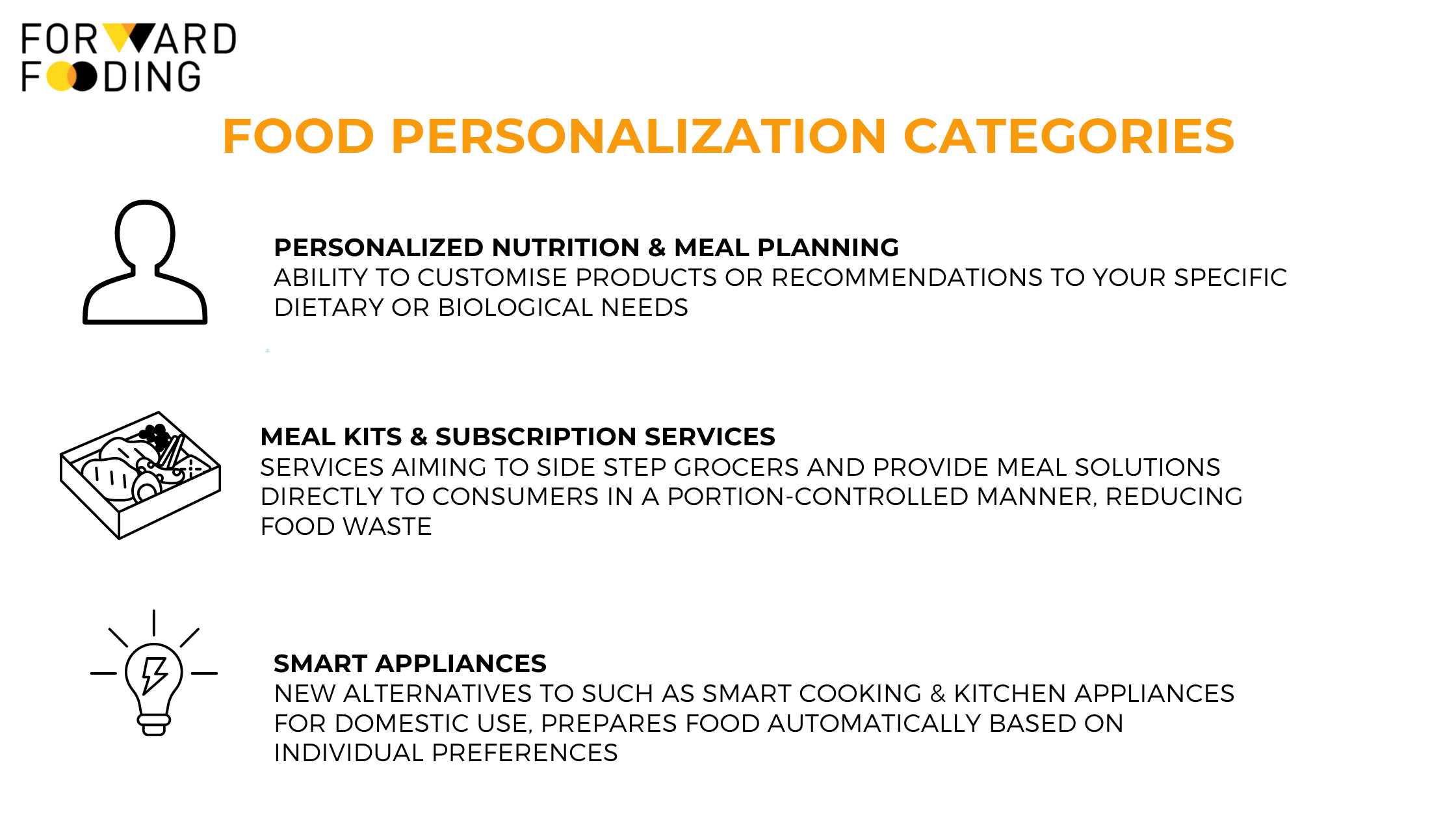
With our FoodTech Data Navigator, we can identify 574 startups and scaleups that we can classify into 3 different ‘clusters’:
- Meal planning & nutrition (192 companies)
- Meal kits & subscriptions services (276 companies)
- Smart appliances (106 companies)
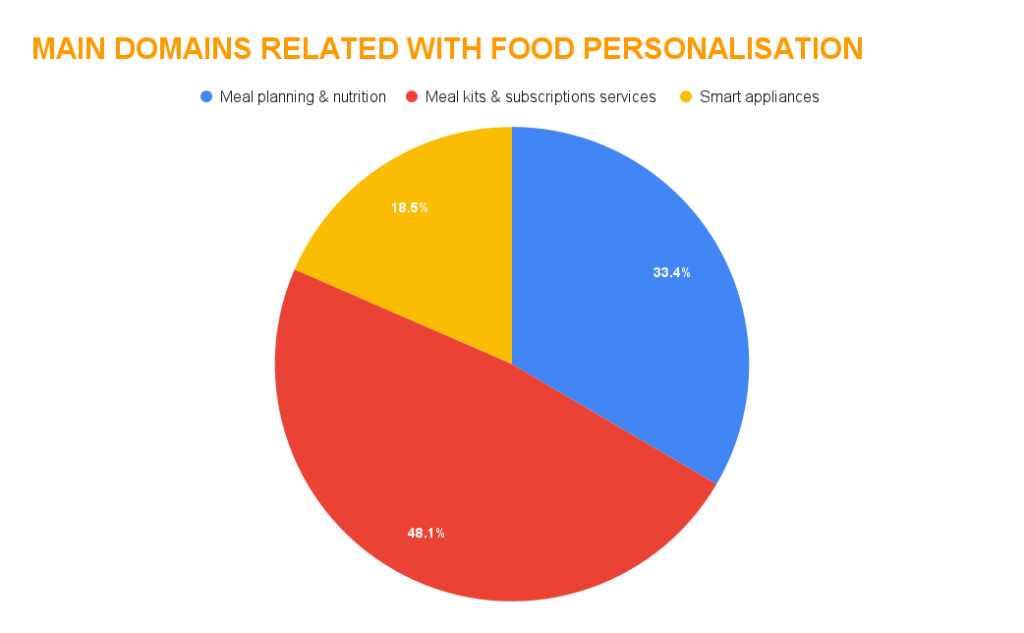
Source: FoodTech Data Navigator
Companies within these 3 categories will have varying degrees of personalization depending on how they make use of data or levels of interaction with consumers.
Regarding funding, 2021 was the highest year for Food Personalization in terms of funding, with a total of €2.1B, thanks to some notable funding rounds like Noom’s $540 million Series F (May 2021) and Vita Health’s $133 million Series E (April 2021). Despite a decrease in the total funding volume since 2021, the 2020-2023 CAGR remains positive at 13.8% (compared to -20% for the Whole AgriFoodTech Ecosystem).
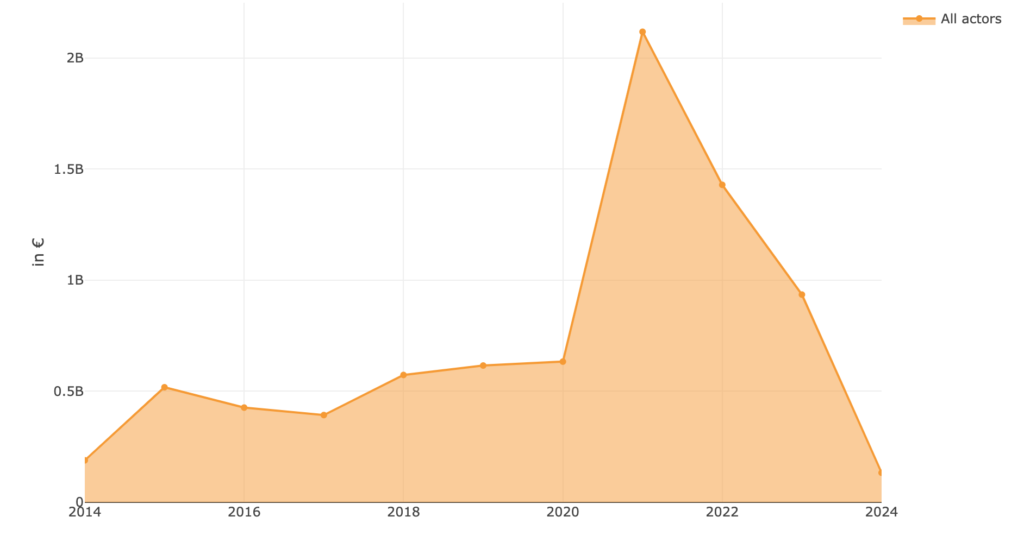
Evolution of Funding Raised (2014-2024)
Personalized nutrition and meal planning
-
Ombre
This company, founded in 2016 in the United States, delivers food and targeted probiotic recommendations based on a consumer’s gut microbiome sample taken at home and shipped to the company to analyze it. Ombre has raised US$3 million in seed round funding, with Unilever participation, and US$9.5 million in total funds to date.
-
Nourished (#124 of the 2021 FoodTech 500)
Nourished, a UK company founded in 2019, has a direct-to-consumer business model offering vitamin supplements via a subscription model to consumers. They make personalized vitamin supplements in the form of jellies with 7 nourishments to choose from 34 available and based either on an online quiz or on the customer’s preference. According to Melissa Snover, founder and CEO, 2021 was a great year in terms of growth:
‘’Compared to 2020, we have seen D2C order volumes increase by 288% and our corporate sales revenue increase by 700%. Since launching our concept in October 2019 we have gone from just 15 employees to over 80, and are about to set up our third manufacturing site in Birmingham. ‘’
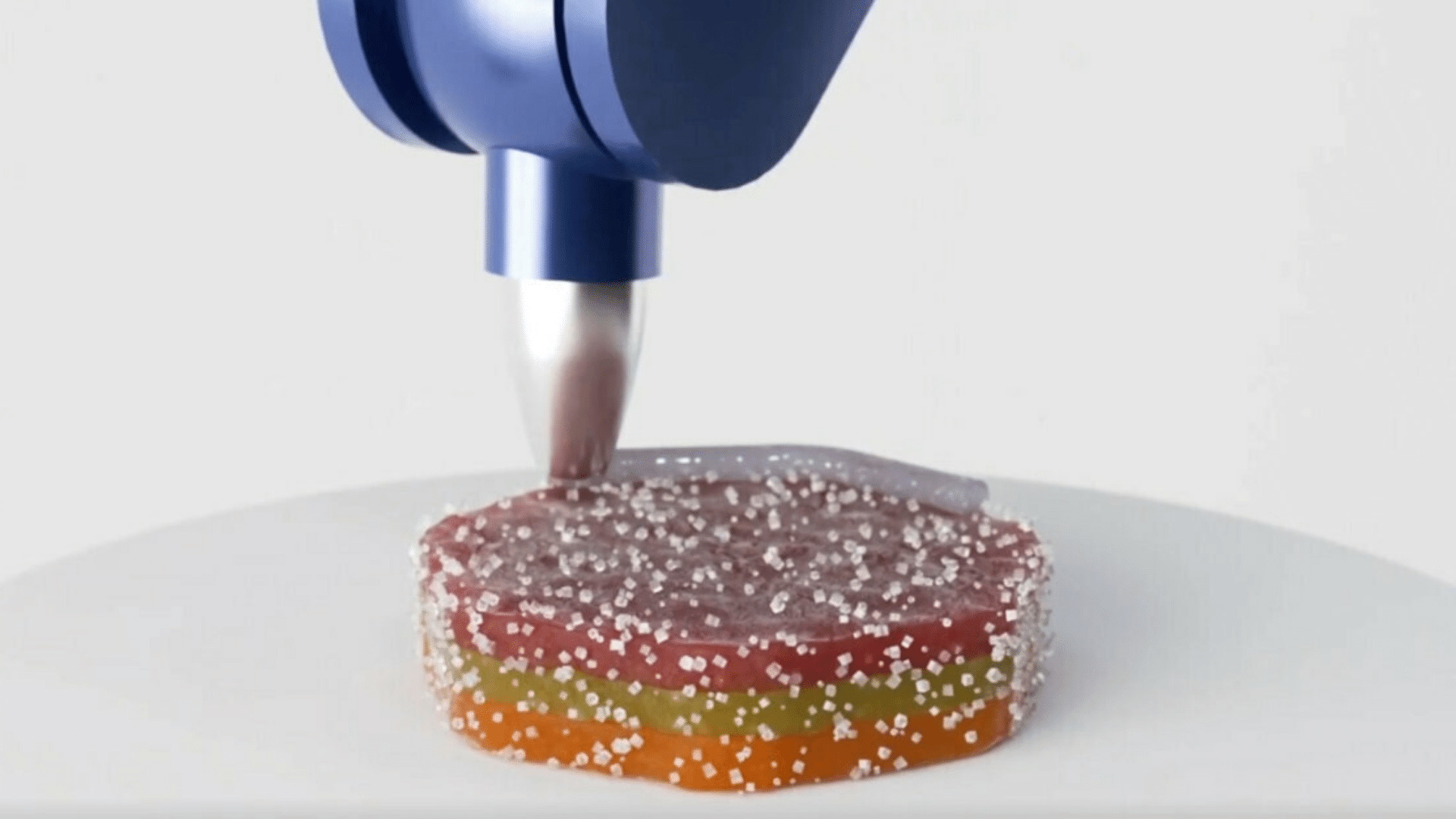
-
Faeth
Faeth is an American company founded in 2019, focused on matching specific diets with tumor genotypes and treatment regimens to improve the outcomes of cancer therapy. The San Francisco-based startup just raised U$S20M in their latest funding round.
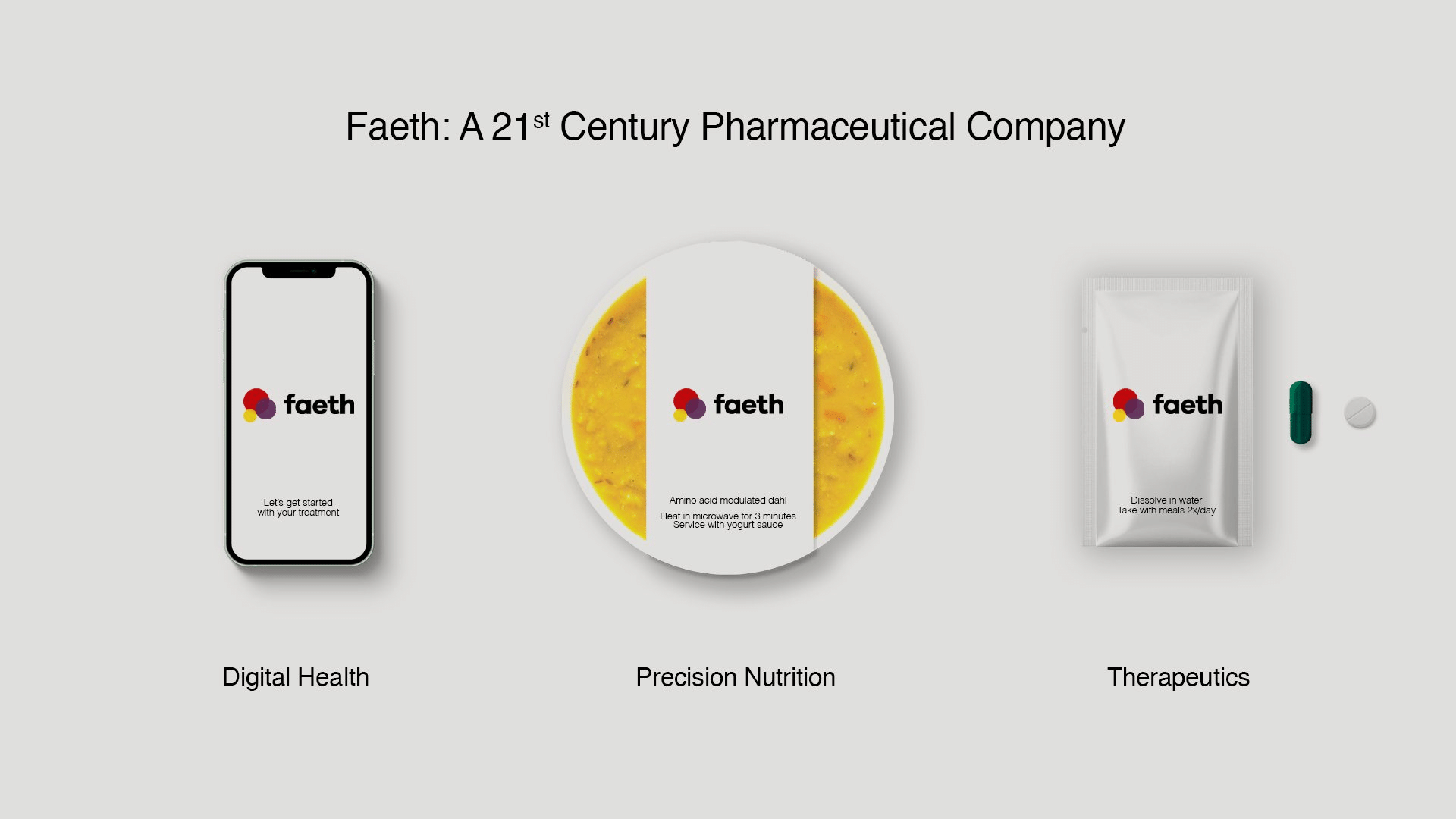
Meal kits & subscription services
-
Feat food (#149 of the 2021 FoodTech 500)
Founded in 2015 in Italy, Feat Food (member of our Milan’s Food & FoodTech Innovation Hub) is a direct-to-consumer ready meals subscription service. Is the first company to use machine learning to create fully tailor-made ready-to-eat meals and to deliver them to customers’ doorstep through a subscription model. In this specific case, the customer has the ability to completely customize the nutrition profile down to grammage and ingredients of the meals delivered, adopting a meal-as-a-service model.
Andrea Lippolis, Founder & CEO at Feat Food explained why they started the company and what is the impact they want to generate:
‘’I saw a huge problem in Human health that has not been solved yet, obesity and unhealthy habits. Actually, even if every person is different, we all eat in the same way. To be healthy we need a specific and unique nutrition, but there are no solutions out there. Indeed, we provide customers with unique and tailor made ready to eat meals that are based on their specific needs. We do this in order to let people live healthy without thinking of what to eat every day.’’
-
Splendid Spoon
This company, founded in 2013 in the USA, runs a direct-to-consumer business model of juices and soups in the form of personalized meal kits. They allow consumers to customize their plant-based menus thanks to the wide offering of meals available. Their latest funding was raised on Feb 9, 2022 from a Series B round, where they received funding from Danone Ventures among others. Their key differentiator is that a plant-based approach is taken using only non-processed fresh fruits and vegetables or prepared in the form of smoothies or soups.
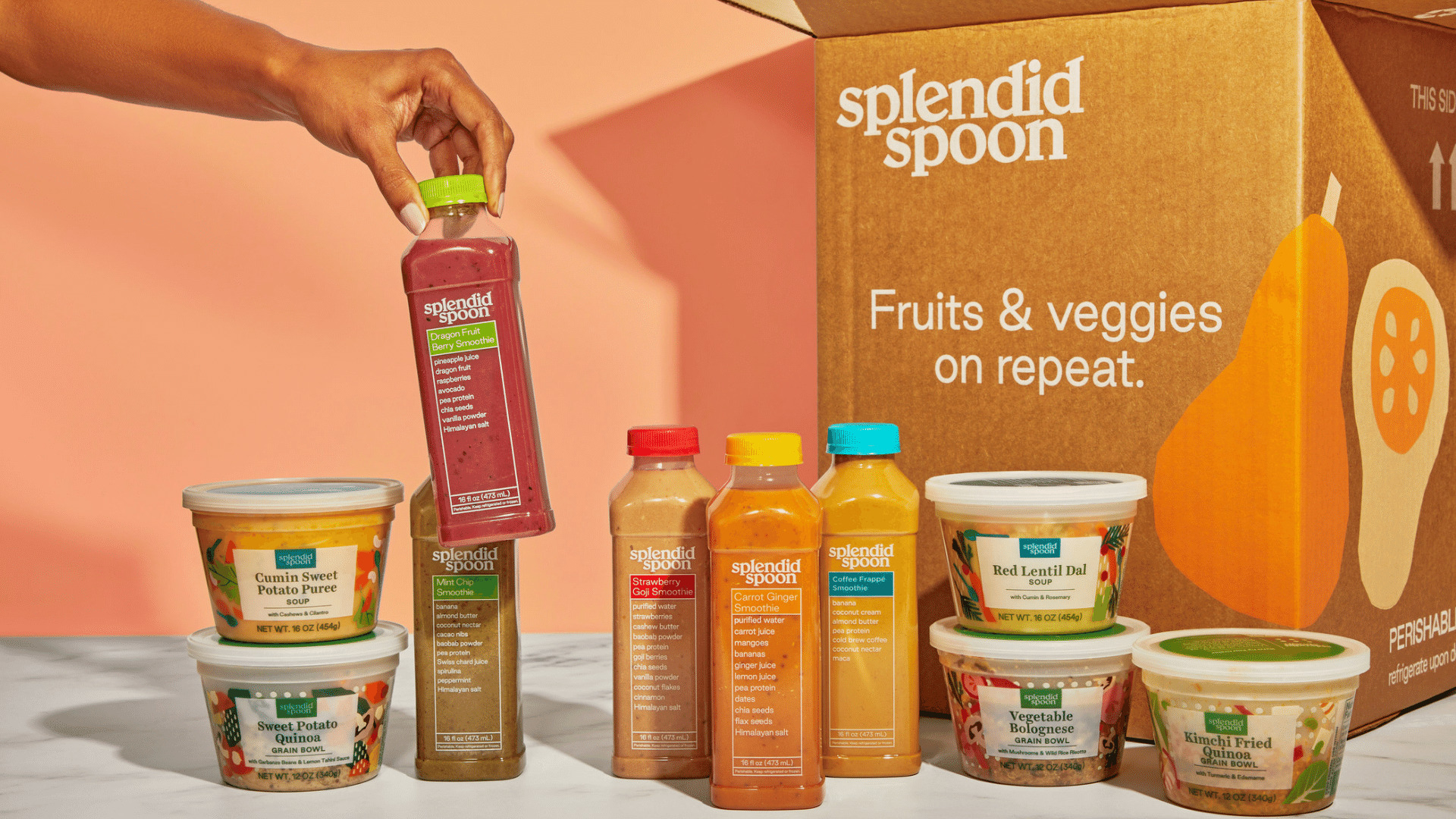
Smart appliances
-
Natural Machines (#168 of the 2021 FoodTech 500)
This startup founded in 2018, a member of Barcelona’s Food &FoodTech Innovation Hub, is the maker of Foodini: a 3D food printer that personalizes food, to eat healthier, improve kitchen efficiency and lower food waste.
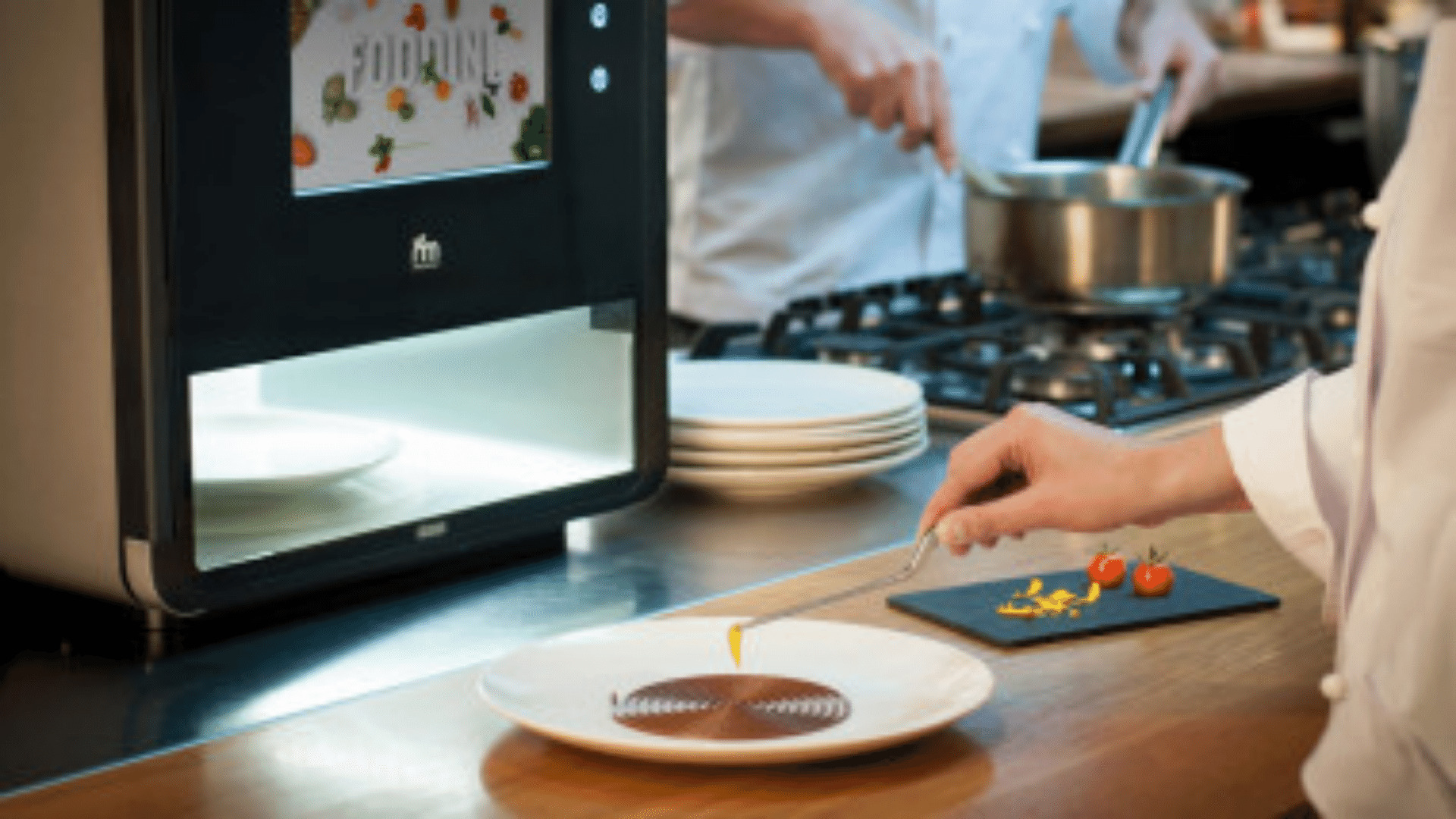
- Yogut
Yogut, a Swedish startup founded in 2018, specializes in personalized functional foods on demand. This award-winning FoodTech startup creates a new way to produce personalized plant-based dairy alternatives: Foods that are filled with gut-friendly bacteria and other healthy functional ingredients, and that can be made conveniently at home. The idea’s to give the possibility to people to create their own better dairy alternatives, good for their gut, their health and the planet
What’s next?
Many challenges lie in the way of food personalization. Being able to predict someone’s behavior and consumption habits by collecting data, decoding it and making sense of it could be challenging and expensive.
Naveen Jain, Founder of Viome Life Sciences reaffirms this idea:
“After digitization, the next challenge was the cost of decoding these massive troves of digital data. We were certainly aware of the advances in cloud computing, but we were still paying close to $50 to process the digitized information for every individual. We expected the cost of decoding the data to drop to $10 over the next few years.”
Additionally, one of the biggest and key challenges is delivering personalization in mass. Is is realistic for the food sector? How can companies offer mass food personalization in a scalable and affordable way? While FoodTech startups are currently leading the charge when it comes to providing consumers with a personalised experience, Big Food companies are starting to come into the space. Nestle for example, the world’s largest food company, is now offering a home kit to provide samples for blood and DNA testing that helps to offer a fully personalized nutrition service.
Yet, personalization in mass still presents a lot of challenges. As established by Chris Wells, Leatherhead Food Research managing director, in a FoodNavigator interview:
“Meeting demand for personalized products can be expensive and logistically challenging. After all, for many years large manufacturing facilities have been geared up to offer economies of scale via mass production. It’s not easy to cater for personalisation in these environments.”
Do you want to learn more about the future of food personalization? Access our Food Data Navigator HERE to discover all the companies analyzed in this blogpost, or get in touch HERE for a tailored consultancy.
Follow us
Sponsored Articles
9 July 2025
Forward Fooding celebrates the selection of 12 pioneering startups for the inaugural pladis Accelerator Programme. From water lily popcorn to sugar-converting enzymes, these innovations represent the future of snacking, addressing obesity, sustainability, and personalized nutrition through cutting-edge food technology.
21 March 2025
Tim Ingmire, VP of Global Innovation & Technology at pladis, discusses how the snacking giant is supporting early-stage startups in foodtech, health, and sustainability through their accelerator program. Learn about their focus on personalized nutrition, functional foods, and future ingredients to bring innovative, delicious products to consumers worldwide.
8 February 2024
Future Food-Tech returns to San Francisco on March 21-22 Over 1,700 food-tech leaders, from CPG brands, retailers, ingredient providers, [...]
1 February 2023
The 4th edition of FoodTech 500 is taking off and we are excited to partner with NEOM for the third consecutive year to support the best international AgriFoodTech entrepreneurs.
10 February 2022
One of the elements we enjoy the most here at Forward Fooding about working with AgriFoodTech startups is being [...]
